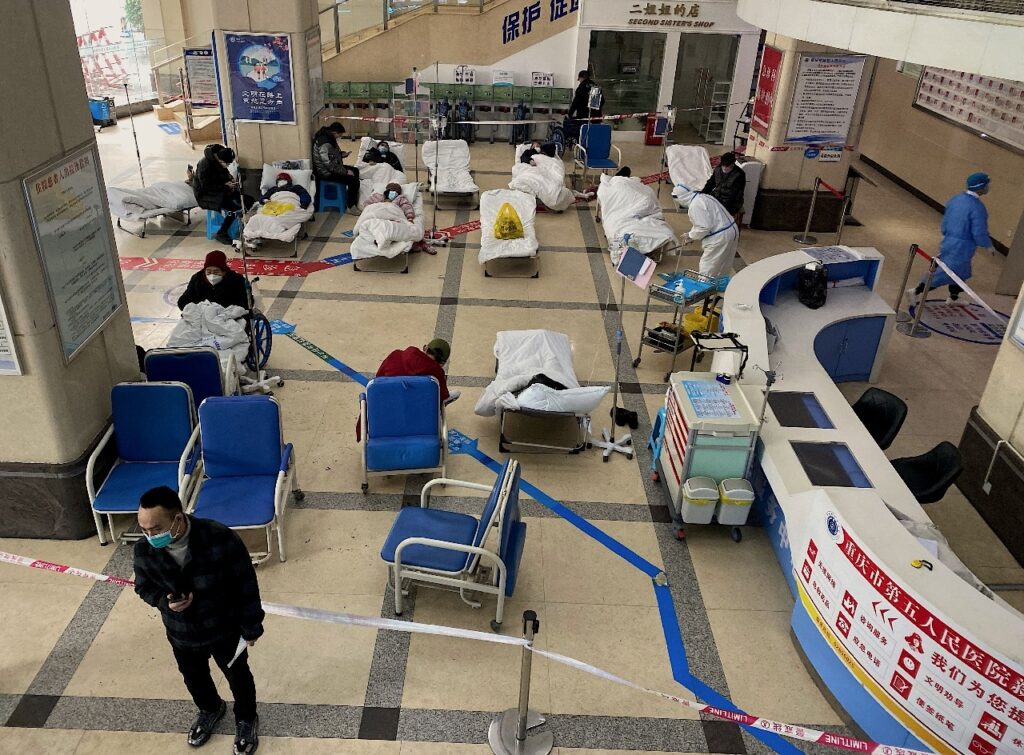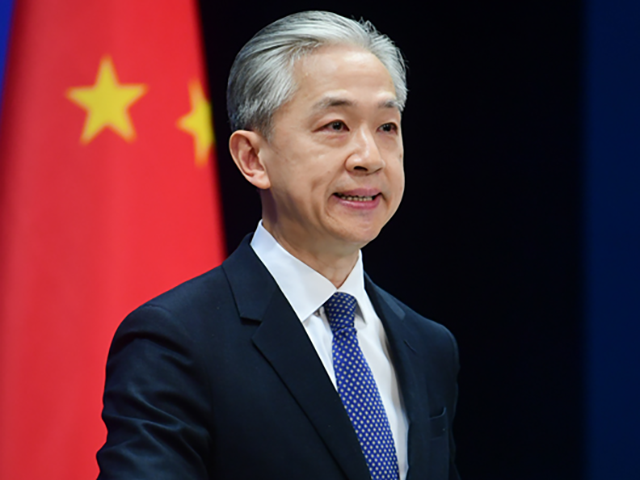World Health Organization (W.H.O.) Director-General Tedros Adhanom Ghebreyesus said on Thursday that W.H.O. needs “more detailed information” about the massive coronavirus outbreak in China to “make a comprehensive risk assessment.”
This seems like the gentlest possible way to prod the Chinese Communist government to stop concealing the extent of its infections and deaths from the outside world.
As I said at our most recent press conference – in order to make a comprehensive risk assessment of the #COVID19 situation on the ground in #China, @WHO needs more detailed information.https://t.co/5s9LPbLiCj
— Tedros Adhanom Ghebreyesus (@DrTedros) December 29, 2022
“In the absence of comprehensive information from China, it is understandable that countries around the world are acting in ways that they believe may protect their populations,” Tedros added, prodding a bit harder.
Tedros was referring to the decision by countries such as India, Italy, Japan, and Taiwan to impose mandatory coronavirus testing and other restrictions on Chinese travelers while an alleged sub-variant of the highly contagious omicron strain runs wild through the Chinese population.
China recently discarded most of its heavy-handed coronavirus safety protocols and resumed allowing its people to travel internationally. The heavy travel season of the Lunar New Year holiday begins in a few weeks.

Coronavirus patients lie on hospital beds in a cordoned off area in the lobby of the Chongqing No. 5 People’s Hospital in China’s southwestern city of Chongqing on December 23, 2022. (AFP)
Countries that usually receive a large number of Chinese travelers and tourists decided to take some extra precautions, which embarrassed and enraged the Chinese government — even as the first planes filled with Chinese tourists landed in other countries with shockingly large numbers of passengers testing positive. China is particularly upset with Japan, which restricted the number of flights allowed from China, leaving thousands of disappointed Chinese tourists to demand refunds for their plane tickets and vacation packages.

Foreign Ministry Spokesperson Wang Wenbin’s Regular Press Conference on December 30, 2022. (China Ministry of Foreign Affairs)
South Korea announced on Friday that it will require coronavirus tests from Chinese travelers, restrict the number of visas granted to Chinese nationals, limit the number of inbound flights from China, and limit all Chinese air travel to the Incheon International Airport — a set of precautions very similar to Japan’s. South Korea cited the lack of reliable data coming from Beijing as the reason for its enhanced safety protocols.
The United States is scheduled to begin requiring coronavirus tests for visitors from China, Hong Kong, and Macau on January 5.
Chinese Foreign Ministry spokesman Wang Wenbin objected to Tedros’ remarks on Friday and insisted China has been acceptably transparent with its Chinese coronavirus data.
“I have stated that for all countries, [Chinese coronavirus] response measures need to be science-based and proportionate without affecting normal travel and people-to-people exchange and cooperation. Over the past few days, authoritative medical experts from different countries have said that entry restrictions on travelers arriving from China are unnecessary,” Wang huffed.
“We need to underscore that since the start of [the Chinese coronavirus pandemic], China has been sharing relevant information and data in an open and transparent manner with the international community, including the W.H.O.,” he claimed.
Wang also slammed South Korea for imposing restrictions on Chinese travelers.
“We noted that health experts from many countries have recently shared the notion that from a scientific point of view, restrictions on travelers arriving from China are unnecessary. Over the past few days, many countries have said that they welcome China’s policy on facilitating cross-border travel and will not adjust their entry measures for travelers arriving from China,” he said.






Comments are closed.